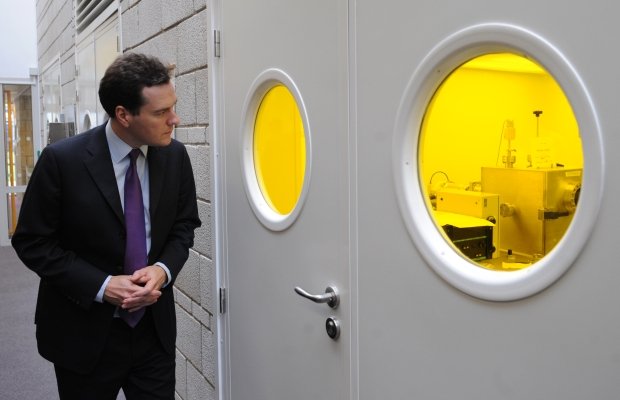Graphene condoms and 3 more cutting-edge inventions from UK universities

The IP Group, set up to bring academic discoveries to market, said today it will spend a further £2.5m on projects trying to uncover practical uses for graphene, extending its tie-up with the University of Manchester
Dozens of UK universities have innovation offshoots that aim to find a home for inventions and discoveries from within their laboratories, sometimes decades before private companies pick up on the commercial possibilities.
Here are some of the most interesting bits of kit to emerge from British labs in recent years.
1. Graphene
Andre Geim and Kostya Novoselov at the University of Manchester won the 2010 Nobel Prize in Physics for discovering graphene, a material one atom thick that is derived from graphite.
Several companies have been set up to work on graphene in the commercial world, including Applied Graphene Minerals, an Aim-listed spin-out from Durham University with backing by IP Group, and 2-DTech, supported by the University of Manchester’s commercialisation offshoot.
The Bill and Melinda Gates Foundation has given $100,000 to Manchester-based researchers to create condoms made from graphene.
2. Driverless cars
The University of Oxford is working with Nissan on RobotCar UK, an electric vehicle that uses cameras and lasers to navigate without the driver’s input. The cars are coming soon to a test site in the UK.
3. Carbon-negative cement
Novacem is a carbon-negative cement product, designed to trap atmospheric CO2.
A company set up to commercialise the material, which was discovered by an Imperial College PhD student, was spun off in 2007 with financial support from the university’s Aim-listed commercialisation firm, Imperial Innovations.
But Novacem went into liquidation in 2012, with its intellectual property snapped up by Australian carbon-capture group Calix.
4. Train software
Tracsis, which started life as a spin-off from Leeds University in 2004, is now an established Aim-listed software group that helps the trains run on time in several countries. The firm won Small Cap Company of the Year at the 2013 Small Cap Awards.
Sir Andrew Witty told the government in October that these sorts of companies are crucial if the UK is going to revive its fortunes as a manufacturing nation.
Some research would suggest that an affiliation with a university is helpful for a company in its early stages, but keeping those academic ties tallies with a worse operating performance over the long term.